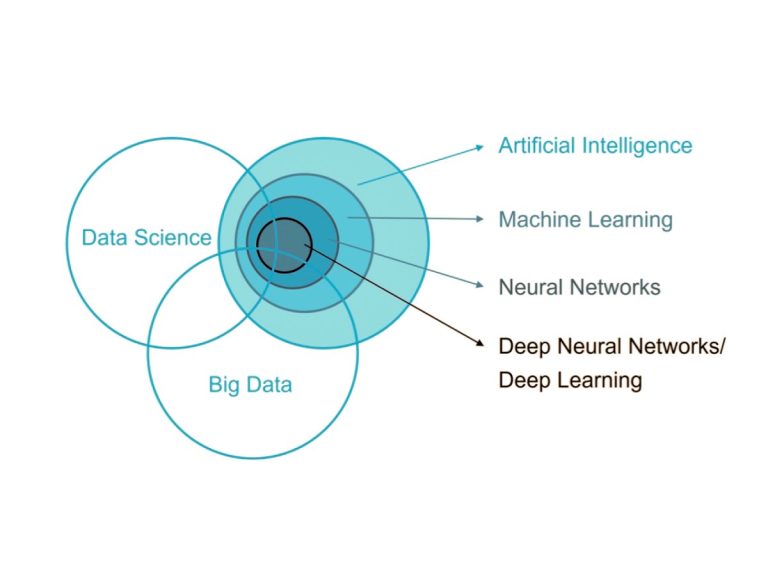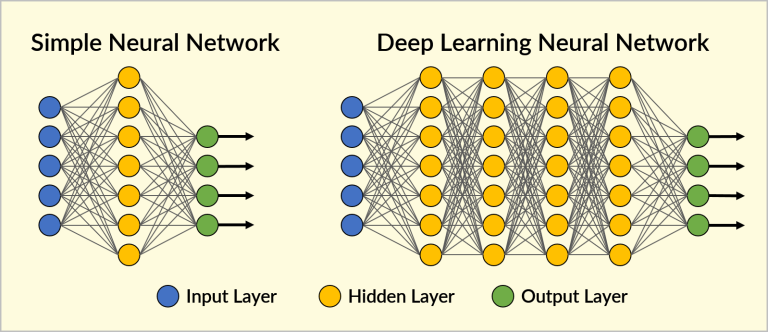In the digital age, data has become one of the most valuable assets for businesses. The term Big Data refers to the massive volumes of data generated every second from various sources, including social media, sensors, transactions, and more. However, the true power of Big Data lies in its potential to drive Artificial Intelligence (AI), Machine Learning (ML), and Deep Learning. In this post, we’ll explore how Big Data intersects with these technologies, fueling innovation and providing insights that were once unimaginable.
What is Big Data?
Big Data is characterised by the 3Vs: Volume, Velocity, and Variety:
-
Volume: Refers to the enormous amounts of data generated every day. From customer interactions and social media posts to sensor data and online transactions, the scale of data is vast and constantly growing.
-
Velocity: Describes the speed at which data is generated and processed. In many cases, data is produced in real-time or near real-time, requiring rapid processing to be useful.
-
Variety: Denotes the different types of data, including structured (e.g., databases), semi-structured (e.g., XML files), and unstructured data (e.g., text, images, videos).
The Role of Big Data in AI, ML, and Deep Learning
Big Data serves as the fuel for AI, ML, and Deep Learning models. The vast amounts of data allow these technologies to learn, adapt, and make informed decisions. Here’s how Big Data interacts with these fields:
1. Artificial Intelligence (AI) and Big Data
AI systems thrive on data. The more data an AI system has access to, the better it can perform tasks such as pattern recognition, natural language processing, and decision-making. Big Data provides the diverse and extensive datasets that AI requires to function effectively.
For example, in customer service, AI-driven chatbots can analyse vast amounts of historical customer interaction data to provide more accurate and personalised responses. This level of service would be impossible without the rich data that fuels AI algorithms.
2. Machine Learning (ML) and Big Data
Machine Learning is inherently data-driven. ML models require large datasets to train, validate, and test algorithms. Big Data provides the diversity and scale of information that ML models need to identify patterns, make predictions, and improve over time.
In retail, for example, ML models analyse purchase history, browsing behavior, and social media activity to predict customer preferences and recommend products. The accuracy and relevance of these recommendations are directly tied to the quality and quantity of data available.
3. Deep Learning and Big Data
Deep Learning, a subset of ML, relies even more heavily on Big Data. Deep Neural Networks (DNNs) require extensive datasets to learn the intricate patterns and features in the data. The depth and complexity of these models mean they need more data to avoid overfitting and to generalise well.
For instance, in autonomous driving, DNNs process vast amounts of sensor data, including images, radar signals, and GPS information, to navigate roads safely. The model’s ability to make split-second decisions in complex environments is enabled by the massive amounts of data it has been trained on.
The Challenges of Big Data in AI, ML, and Deep Learning
While Big Data provides immense opportunities, it also presents several challenges:
-
Data Quality: Ensuring that the data used for AI, ML, and Deep Learning is accurate, complete, and relevant is crucial. Poor data quality can lead to incorrect predictions and decisions.
-
Data Management: Handling the sheer volume and variety of Big Data requires robust infrastructure and sophisticated tools. Storage, processing, and analysis can become complex and resource-intensive.
-
Scalability: As data grows, the systems used to process and analyse it must scale accordingly. This scalability is essential for maintaining performance and delivering real-time insights.
Leveraging AWS for Big Data and AI Solutions
AWS offers a wide range of services designed to help businesses manage, process, and analyse Big Data, making it easier to deploy AI, ML, and Deep Learning solutions.
1. Amazon S3 (Simple Storage Service)
Amazon S3 provides scalable object storage that can handle vast amounts of data, making it ideal for storing Big Data. With S3, businesses can store and retrieve any amount of data from anywhere, ensuring that data is always available for AI and ML models.
2. AWS Glue
AWS Glue is a fully managed extract, transform, and load (ETL) service that makes it easy to prepare data for analysis. It helps in cleaning, enriching, and organising data from various sources, ensuring that your AI and ML models work with high-quality data.
3. Amazon EMR (Elastic MapReduce)
Amazon EMR provides a managed Hadoop framework that allows you to process vast amounts of data quickly and cost-effectively. It’s ideal for running big data frameworks like Apache Spark and Apache Hadoop, which are often used in ML and Deep Learning pipelines.
4. Amazon Redshift
Amazon Redshift is a fully managed data warehouse service that makes it simple to analyse all your data using standard SQL. It’s optimised for large-scale data analysis and can integrate with other AWS services to deliver powerful insights.
5. Amazon Kinesis
Amazon Kinesis allows real-time data streaming, making it easier to collect, process, and analyse data as it arrives. This capability is essential for AI and ML applications that require real-time decision-making, such as fraud detection or dynamic pricing.
Harnessing the Power of Big Data with AI, ML, and Deep Learning
Big Data is the lifeblood of AI, ML, and Deep Learning, providing the raw material these technologies need to learn, adapt, and innovate. As businesses continue to generate more data, the ability to manage and analyse this data will be critical for staying competitive.
At Paisums Technology, we specialise in helping businesses navigate the complex world of Big Data, AI, ML, and Deep Learning. By leveraging AWS’s powerful cloud services, we can help you unlock the full potential of your data, driving smarter decisions and better outcomes. Contact us today to learn how we can support your Big Data and AI initiatives.






